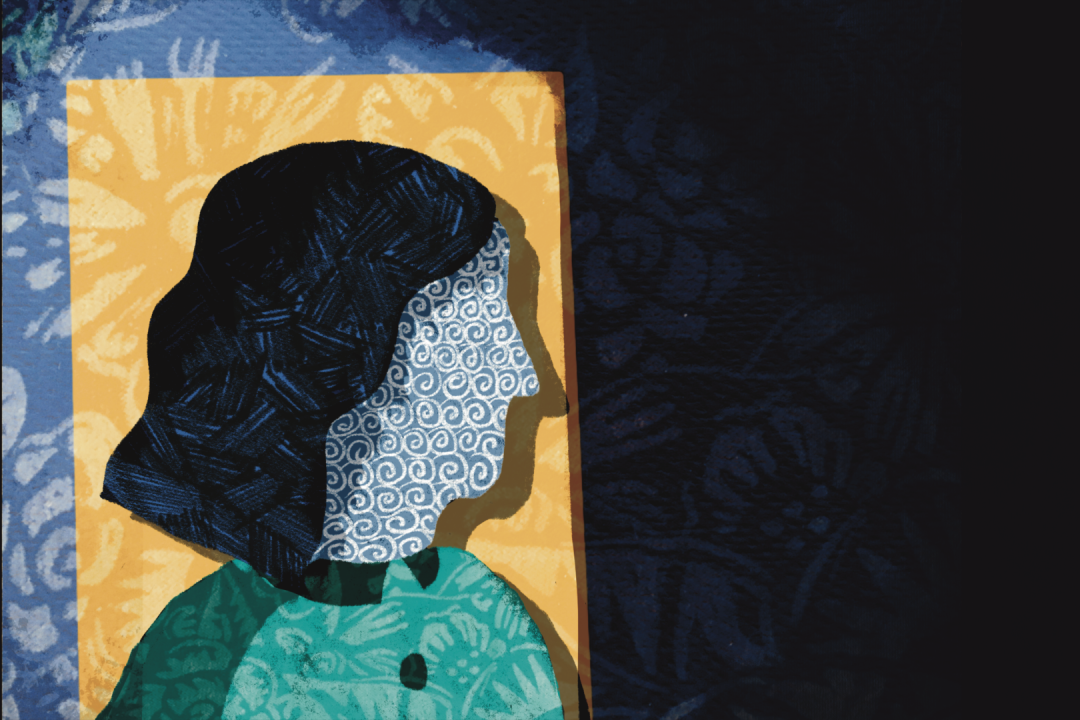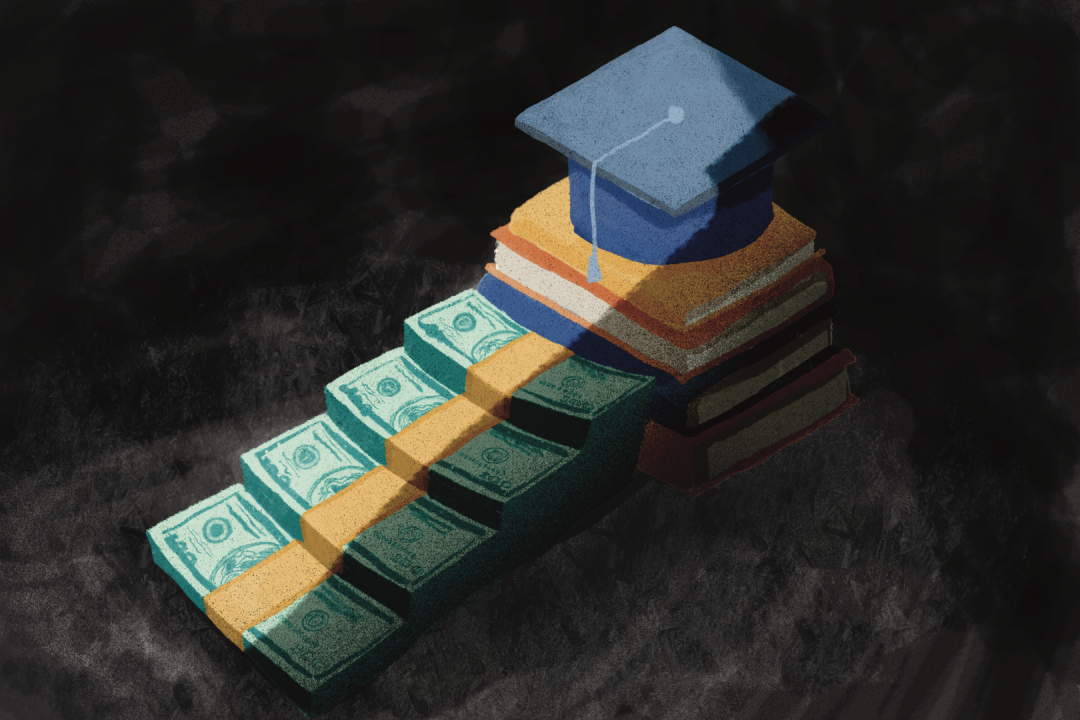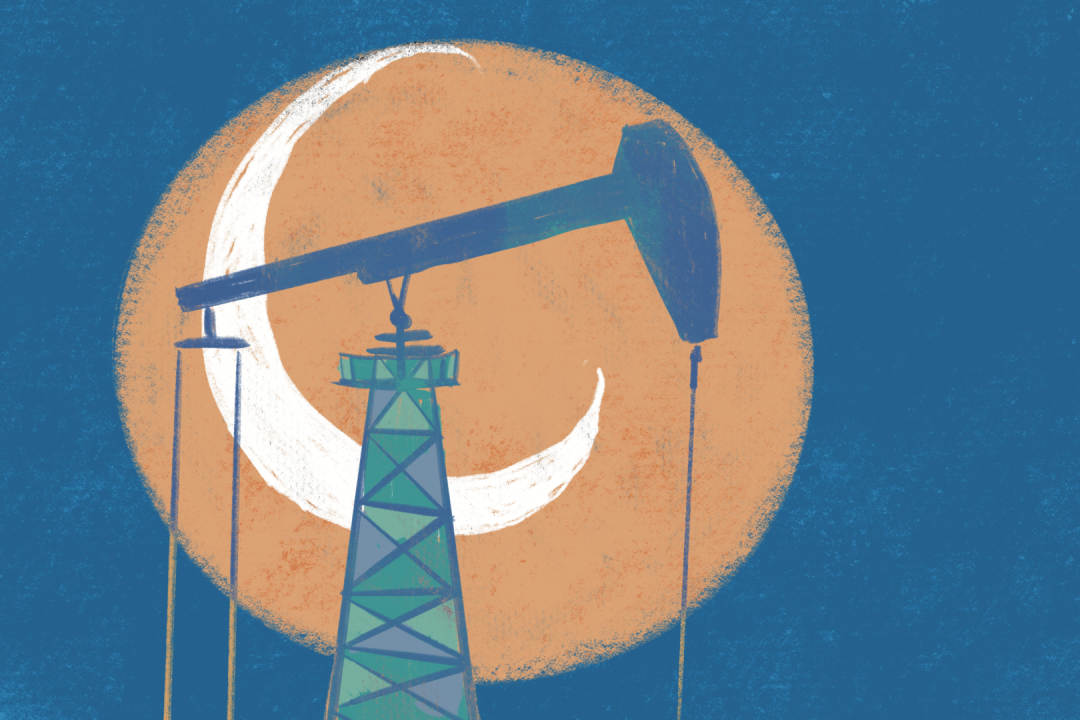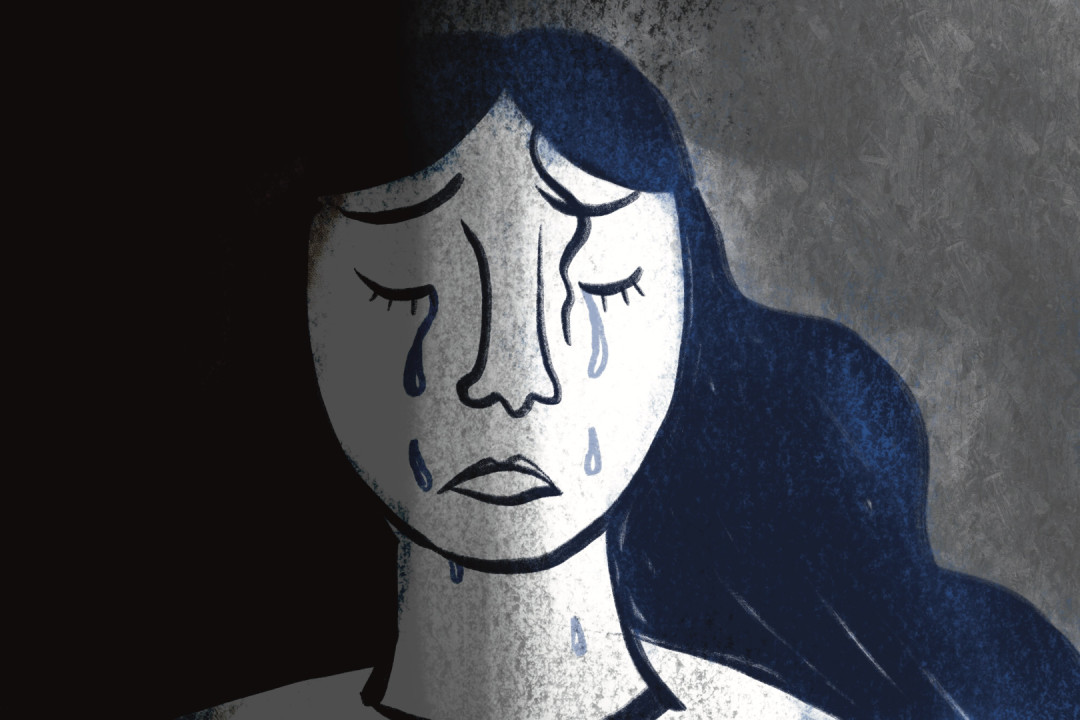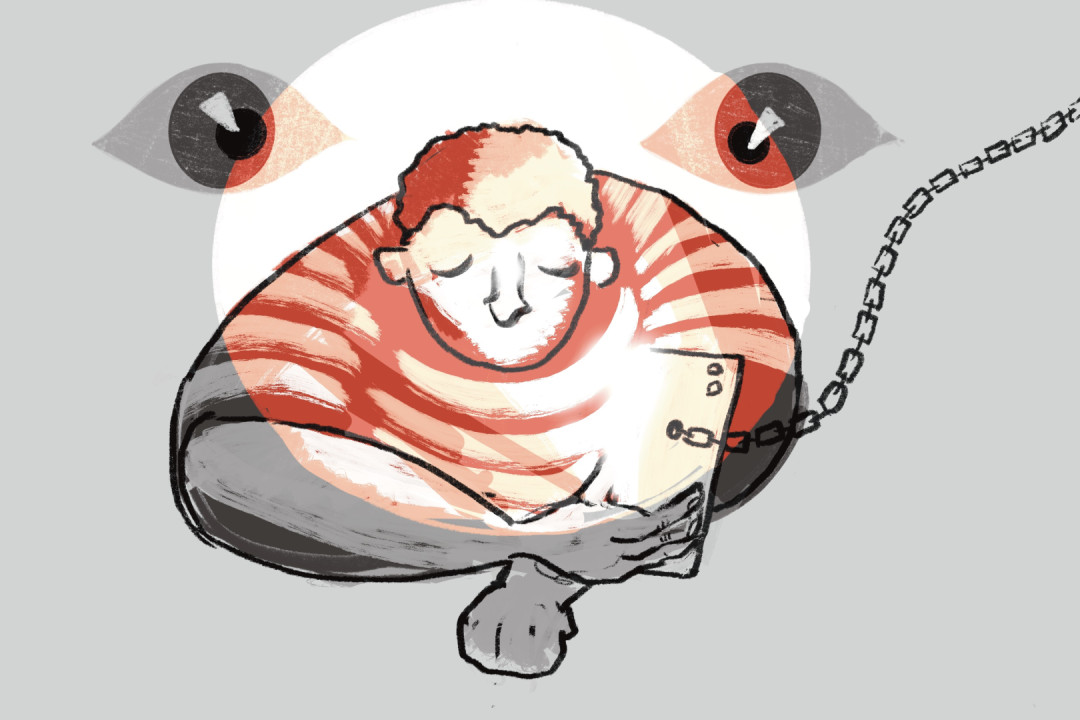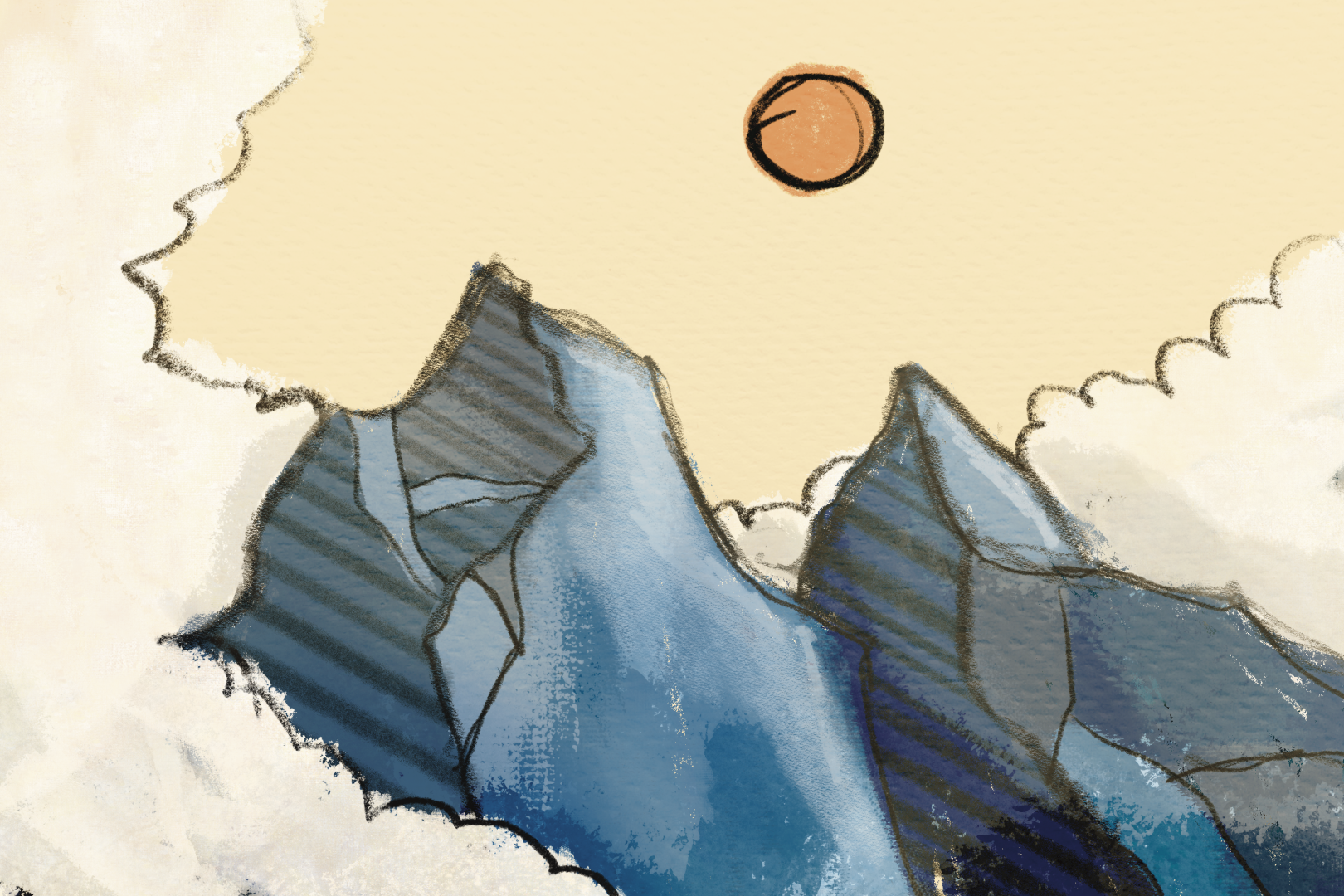
Coming of Age in Kurdistan: Gharbi Mustafa’s When Mountains Weep
By: Vian Kamiran Al-Jaff
During the 1970s and 1980s Kurds suffered from the political practice of the Ba’ath Regime that was headed by Ali Hassan Al-Majid “to solve the Kurdish problem” according to what they said. In 1988, “Chemical Ali” al-Majeed killed between 3,200 to 5,000 citizens in Halabja by chemical bombardment. Men, women, and children died while the United States decided to assist in making the north of Iraq a no-fly zone, in which Kurdish people could rebuild their homes and have new lives. Gharbi Mustafa, a professor of English literature at the University of Duhok, has lived memories of this time and experienced this tragedy. He was born in Mosul in 1967, grew up in Duhok, and experienced and lived among both cultures, which lead to their depiction in his novel When Mountains Weep. He has written two well-known novels: When Mountains Weep: Coming of the Age in Kurdistan and What Comes with the Dust Goes with the Wind, in addition to two more books Jan, Jiyan & Giyan (Pain, Life & Soul) and Euphoria. Postcolonialism and psychoanalytic theories are useful to apply in such cases, to examine the impact of the war and the practice of the Ba’ath party on the character who represents the entire community. Postcolonialism is an academic field that studies the impact of colonialization on the colonized area, during colonialism and in the aftermath of its historical end. Postcolonial critique involves exploring topics of slavery, suppression, migration, and resistance of different races, genders, and places. Though it is based on European colonialism, for instance, when Europe had power over many countries and racial minorities such as Native Americans and African Americans in the US yet, it applies to other forms of colonization.
Psychoanalysis deals with the psychology of the writer or the character in the text, and how they express secret unconscious desires and unsolved problems like dreams and traumas. It analyzes the writer’s psyche which is presented through the characters. Critics examine unresolved sensations, conflicts, ambivalences, and guilts in literary works, and may find and analyze the themes of the writer’s childhood traumas, sexual conflict, and family life. Moreover, postcolonialism and psychoanalysis are interdisciplinary fields that can be studied and applied alongside other fields, such as feminism and Marxism. By applying postcolonial and psychoanalysis to analyze Mustafa’s novel, it will show the impact of political practice on the psychological state of the character. The related theories are connected to portray problems of identity, disempowerment, dislocation, diaspora, migration, unhomely, and the trauma that is associated with these problems.
Mustafa is attentive to humanity in showing the suffering of the Kurdish people and is keen to present themes that focus on humanity such as friendship, family, culture, and society. Mustafa is both an educator and a successful writer. Throughout his career, he has put the student as the center of his focus, and despite his love for education, he found time to pursue his interest in writing fiction. Moreover, his message is universal, as he discusses topics of his own culture and history, he also portrays the suffering and the strengths of his nation, Kurdistan, to the world. He owns a book café, Vesta Books, in Duhok, where he creates an environment that “helps to spread reading which is very weak in this area” as he describes it. His main aim of the book café was to enhance and create a new mindset among the new generation especially young people. During his time in the book café, he admitted that the most selling books were fictional stories, novels, and also a lot of self-help and motivational, inspirational books. Things are not taught at home or in the educational system. The system builds memorizing machines instead of building thinkers.
Mustafa is considering a new historical fiction that will take a few years to write. “I hear horses in my head with swords and primitive guns. Horses are ridden by people and run through mountains. Where will they go, and what will happen? I still don’t know.” The genre of coming-of-age literature in any context is centered on presenting the growth of the protagonist from childhood through maturation. In the context of Mustafa’s work and the Kurdish coming-of-age novel in general, writers explore issues of the nation through the eyes of a child. Hamko’s coming-of-age reflects the Kurdish nation through fiction rather than reading a political history. It shows how a boy understands what is happening to him and the world around him. When Mountains Weep, Mustafa indicates, is an autobiographical work that exposes to the reader, that “your story, your life, your experience can change somebody's life. Share it.”
Unhomely: Tragedy & Trauma of Kurdish People in Hamko’s Character
When Mountains Weep, a memoir novel, was published in 2013 and took Mustafa a year and a half to write while he was in Europe. The novel got the attention of young scholars to talk about and analyze academically and non-academically. According to Mustafa, there are three sources of writing: imagination, real-life stories, and personal experiences. This memoir is a real-life experience, however, it has some imagination.
What to remember!
The first stick, striking down on my shaking hand
From a teacher unable to make me understand.
The first ugly truth: I was born a slave in my own land.
The first tears, for a football I saw in my cousin’s hand.
The first shock, visiting the cemetery,
The first puzzle, losing my identity,
The first crime living in poverty1.
The passage is how Gharbi Mustafa begins his novel, When Mountains Weep, presenting trauma in different shapes, visiting little Hamko and settling in his soul, creating a gap that could be filled either with hope or revenge. Mustafa intended to fill Hamko’s soul with hope, “emphasizing the optimistic nature of Kurds throughout their history”. He describes them as “optimistic fighters, fighting the sense of life”. This sense of hope became the protagonist’s secret weapon in the face of tyrants of his time and is a hope he feels he inherited from his grandfather and father, which he now sends to the future generation.
The novel discusses a variety of themes, such as identity, trauma, culture, epiphany, and history. The novel has a traumatic figure, the main character, little Hamko, experienced the trauma of losing his identity, the feeling of homelessness, and a lack of sense of belonging. The story is told from the first person point of view, as an adult restores his stolen childhood.
Mustafa depicts the basic and necessary elements of belonging that Hamko lost. His detachment from school from the first day, from a teacher who was supposed to be a model for children, detachment from the land he was born in, his ancestors, language, and identity. A sense of belonging, as Taş presents in his article, is the feeling of “personally being accepted, respected, included, and supported by others in the social environment”. Hamko did not share these feelings during his childhood, he was not accepted for who he was, nor respected for his identity. When he refused to “draw a picture of the brave Iraqi army attacking the enemy-Kurdish outlaws in the mountains”2, he got punished and expelled from school. Hamko did not have friends like other kids, on the contrary, “they’d knock me down and kick me until I shrank into a little ball to avoid their abuse. Other times I walked away in silence, with my head down”3. All that was presented as a lack of support from the environment whether the street or the school.
In an article, Taş presents religion, education, and language as the three essential elements in the practice of colonization, subjugation, and assimilation, explaining that exposing individuals to any of those tools will lead to losing their national or ethical identities. In the case of Hamko, education and language are the tools which the Ba’ath regime tried to control. For instance, in school “Every Iraqi textbook featured a photo of the president on the first page”, and “in every class, we had to stand and chant ‘Long live the President’ and ‘Long live the Arab nation.’”4 While language was also controlled in the street and everywhere except in Hamko’s home; “Why do we speak differently in our home, and what was the strange language I am hearing away from home?”5amko lives his childhood in a place where he does not belong, they spoke a different language that he could not even understand “Once we were in the headmistress’s room, my mother exchanged a few words in a language I couldn’t understand. The only word I could pick up from the conversation was Hamko, my name”6.
Gharbi Mustafa portrays his sense of life through his character, Hamko. He did not depict the discrimination on an economic or political basis, rather he described the feelings of belonging of the people triggered by their “unhomely” condition. Unhomeliness is a concept found by Homi Bhabha, who defines it as a “feeling or perception of abandonment by both cultures the colonial subject (the colonized) to become psychologically refugee.” Little Hamko was psychologically a refugee in his childhood; on the one hand, he lived among Arab communities who called him ‘the Kurd’ and ‘the brainless Kurd’7. However, on the other hand, he was called ‘the Arab boy from the south, the son of a tattooed woman’8 when he settled in his Kurdish motherland. A UNHCR report indicates that children who are born in a stateless world will face discrimination during their lives. Thus, it will affect their ability to grow and achieve their dreams for the future. The poetic language that Mustafa used to express his childhood memories in the line “the first ugly truth as being born a slave in one’s land”9 is an example of the abandonment of his land.
Frantz Fanon, a French psychiatrist, contends that subordinates should declare their native culture to recover their repressed history. Hamko needs the feeling of belonging to his ancestors’ land to internalize his home. And that is by building a strong and close relationship with his grandfather, who always tells him stories about his ancestors and speak only his mother tongue, Kurdish. Moreover, Sigmund Freud, the father of psychology, came up with the term “unheimlich” which translated to English as “uncanny”. The unheimlich inspired Bhabha to innovate a new concept of “unhomely”. According to Bhabha home is not a physical object and unhomely is not being without shelter. The feeling was described psychologically as being unsafe in a familiar place. To Freud, the uncanny is the feeling of the unfamiliar within the familiar. Whereas Bhabha calls unhomely, the feeling of being unfamiliar in one’s own home, and unhomeliness is found in the experience of migrants, those who are geographically or culturally dislocated.
Hamko’s first poetic lines of the novel “being born a slave in one’s own land”10 is a reference to his feeling of unhomely at his home. This unhomeliness gives him the feeling and the need to belong to his home, which clarifies his attachment to his grandfather’s home –a place where he hears stories about his ancestors– more than his parents. Later on, as he grew up, he took the responsibility of delivering medicine to his uncle in the mountains. His uncle was in Peshmarga, so Hamko wanted to experience his belonging to the brave Peshmarga who fight for their land. Afterward, when he entered university and met Pari, a girl he loved, he had a sense of belonging again but it soon vanished with the beginning of the 1991 Kurdish uprising against the regime.
It is not only Hamko who feels the sense of unhomely, this feeling also permeates among his people. Mustafa depicts this through the imagery of the seasons and their relation to Kurds. People in Kurdistan wait for spring to celebrate in nature because they belong to it. After all, it is a Kurdish tradition, Newroz, that means “a new day”. The celebration gives them the feeling of belonging and happiness however, the happiness is combined with pain because they know it is the season of “an upcoming bloody assault.” As a result, their feeling of belonging is never fully fulfilled. When they went to the Turkish borders fleeing from the death of suppressing the uprising, they faced the death of the cold, tough weather where the rain was falling over their bare heads, and the ground starves them to death. The only shelter was the mountains. Mountains were depicted as strong, and may shake but never fall. Thus, their belonging is always connected to their shelter, the mountains “but the mountains would embrace me like they always had and would offer me comfort”11.
Surviving the physical & psychological pain; Trauma & Recovery in Hamko’s Character
Critics agreed that childhood experience has an essential role in developing the personality and behavior of adults. To reach a healthy personality, it is important to be nurtured in a healthy environment, otherwise, there will be trauma within the psyche of the individual. Freud, for example, indicates that the stages which shape the personality are five; oral, anal, phallic, latency, and genital. However, these stages are mainly built on the sexual concept. Whereas Erik Erikson, a German psychologist and psychoanalyst, was well known for his theory of the psychological development of the human being. His theory was adapted based on the social concept and dig into the psycho-social crisis of the individual. Within his theory, he presented eight stages that build the human personality. First, infinity starts with birth, then early childhood, preschool, school age, adolescence, young adulthood, middle adulthood, and finally maturity which lasts until death. This article will examine school age (6-11), adolescence (12-18), and young adulthood (19- 40) as the narrative begins with Hamko at age six.
The novel depicts three stages of personality development. The story begins with Hamko a grown-up man remembering his first year of school and experiencing what Erikson called “Industry vs. Inferiority”. This stage takes place in school, kids’ successes in subsisting in a social and academic environment will result in creating a sense of competence, whereas failing will create a feeling of inferiority within society. Hamko’s school memories were not pleasing; he was detached from kids of his age, beaten, and called a “brainless Kurd”, he experienced the dehumanization practice by the totalitarian government. The Ba’ath party used to force political assimilation on “the other”, social subjugation, and psychological suppression. According to Herman, children who have been abused during their childhood “cling to the hope that growing up will bring escape and freedom.” Hamko was not abused by his family but rather by the social environment of his teacher and friends in school. He was forced to glorify Saddam Husain with anthems and got punished for not “draw[ing] a picture of the brave Iraqi army attacking the enemy-Kurdish outlaws in the mountains”12 by the headmistress when “she poured the ice-cold water over my hands and hit my wet fingers fiercely and repeatedly with a stick”. Moreover, Herman continued that the person who grows up in “an environment of coercive control” will not adapt well to adult life. As a result “the survivor is left with fundamental problems in […] self-care, in cognition and memory, in identity, and in the capacity to form stable relationships.”
Based on Herman’s argument that recovery from trauma is never complete and “the impact of the traumatic event continuous to reverberate throughout,” Hamko never fully overcomes his traumatic childhood because “they have shaped his first encounter with ‘the other’”. Mustafa intended to present Hamko’s character as strong, and undefeatable, to survive various setbacks and emerge a survivor. His positive attitude towards the negative life gave him the strength to fight for life. Thus the hope that Mustafa planted in Hamko’s character grows up every day, fed by pain, problems, love, anger, friendship, family, and dreaming of a better future. Though Hamko did not sustain a good social and academic environment in his first years of school, however, his relationship on the other side with his family and the feelings of belonging to his Kurdish ancestors kept him safe from those of inferiority.
The traumatic events were not limited to his childhood. During adolescence, the individual’s character becomes more accurate as it gets influenced by life, society, culture, politics, and social relationships. Erikson indicates that social relationships begin between 12 to 18 years old and will shape the character’s identity, and failure in this stage will lead to a weak sense of self and role confusion. At age of thirteen, Hamko saw a girl being killed by her father and cousin for getting pregnant. The gory scene of a girl being stabbed in her chest and stomach by two people with knives while she screams and begs them not to kill her, left the adolescent Hamko shocked and emotionless14. In addition to the loss of “appetite for girls altogether and made a vow never to touch a girl before our wedding night”15, he kept thinking of the girl for weeks, he was also never involved in any activity that had a girl in it. His PTSD is strongly recognized as the novel begins with Mustafa recalling his memories from childhood until adulthood. Traumatized people “relive the events as though it were continually recurring in the present.” Moreover, Hamko talks about the kidnapping and torture he had by the Iraqi secret policemen just because he has been wearing a red shirt. He thought he would never see the light again “common knowledge was that once they took you inside, you come out in only one of two ways, in a coffin or completely insane”16. However, whenever Hamko survives torture, problems, and accidents, Mustafa focused on the positive side instead of the negative. He describes Hamko as a survivor, looking forward to a better future. Based on Herman’s argument that “[t]he survivor frequently resists mourning, not only out of fear but also out of pride. [He] may consciously refuse to grieve as a way of denying victory to the perpetrator”. During his duty in the army, he experienced very unpleasant weeks and saw depressing views of the dead bodies that “[he]’ll never forget”17. Nevertheless, on his return, Mustafa narrated the benefit and the encouraging outcomes that Hamko came up with which was told in his father’s words “I told you to let him stay in the mountains for a while so the army could change him into a human being”18.
A love relationship is essential in the development of an individual’s personality. In the stage of adulthood, according to Erikson, intimacy is required and success will lead to a strong relationship, while failure will lead to isolation and loneliness. Love and relationship plant the feeling of attachment and belonging, it gave Hamko the power to survive. Pari was Hamko’s first true love, with her love he experienced the feeling of belonging. Though this relationship did not last due to the attack of the Iraqi forces on the Kurdish cities. People were forced to leave the city, Hamko did leave the university but he did not leave Pari. Her image was the map and her smile was the direction. For Hamko, Pari was the peaceful light of the sun after the darkness of the cold wars’ nights. “I saw Pari’s face twinkling among the stars, looking down at me with her heavenly smile. I felt some warmth in my body as my heart began to tingle back to life, kindled by the fire of my flickering love”19.
Pari was the promising future after the suffering of the day. Even after her departure to the United State, Hamko did not stop loving her “I will love you for eternity”20. Love to Hamko, as well as to Mustafa, is “the power that should give meaning to our existence - not lead to our ruin”21. Mustafa did not give the chance to Hamko to live in grief and pain to traumatize himself, there was always light in Mustafa’s eyes. The light gave Hamko hope and nothing can kill the hope.
Hamko and his people suffered torture and violence, however, Mustafa did not re-victimize his character, Hamko. He idealized him with the human nature of surviving as Hamko said based on Mustafa’s words “despite the pain, I was relieved to have survived”22. It is not the road that matters, it is the destination since all roads have obstacles. However, not all destinations are similar. It depends on us, some quit at the beginning, others stop in the middle losing the appetite to continue while the rest fight until they reach their final destination. Kurds are strong fighters, throughout history, they fought for their freedom, rights, voice, language, land, and culture. Kurds are optimistic, they cling to life on the hope that “One day, all this will end”23.Mustafa concludes the novel by reminding the reader to stand up again, gather their fragments, and fight to find what has been lost and changed through their journey.
1Mustafa, pg. 2.
2Mustafa, pg. 10.
3Mustafa, pg. 13.
4Mustafa, pg. 12.
5Mustafa, pg. 9.
6Mustafa, pg. 5.
7Mustafa, pg. 13.
8Mustafa, pg. 26.
9Mustafa, pg. 2.
10Mustafa, pg. 6
11Mustafa, pg. 102.
12Mustafa, pg. 10.
13Mustafa, pg. 11.
14Mustafa, pg. 55.
15Mustafa, pg. 57.
16Mustafa, pg. 50.
17Mustafa, pg. 79.
18Mustafa, pg. 79.
19Mustafa, pg. 125.
20Mustafa, pg. 169.
21Mustafa, pg. 169.
22Mustafa, pg. 160.
23Mustafa, pg. 168.

